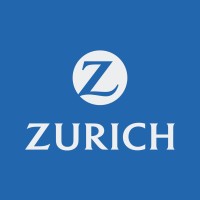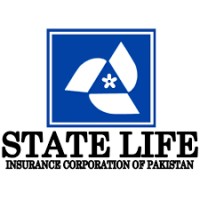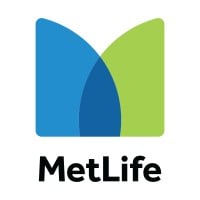
Tokio Marine Insurance Group (Asia) Company Cyber Security Posture
tokiomarine.comWelcome to the official page of Tokio Marine in Asia. More than 140 years ago, we were established as the first Insurance company in Japan. Our network now spans across 45 countries, and we have never lost sight of conducting business with integrity, passion and quality. Doing good, being good means profits are not the be all and end all of our existence, but a natural progression of doing the best for customers, employees and society. Working to be a Good Company brings us together as a united global insurance group. WHO WE ARE Established in the year 1879 as the first insurance company in Japan, TOKIO MARINE has grown over the decades, now offering an extensive selection of General and Life insurance products and solutions. With a presence in 45 countries and expanding, Tokio Marine ranks as one of the world’s most globally diversified and financially secure insurance groups. Today, as Japan’s largest insurance group with over 43,000 employees, Tokio Marine is ever-ready to partner with you to continuously realise more achievements.
TMIG( Company Details
tokiomarine
2051 employees
91221.0
524
Insurance
tokiomarine.com
Scan still pending
TOK_1015795
In-progress
Between 900 and 1000
This score is AI-generated and less favored by cyber insurers, who prefer the TPRM score.
 TMIG( Global Score
TMIG( Global Score.png)

Tokio Marine Insurance Group (Asia) Company Scoring based on AI Models
| Model Name | Date | Description | Current Score Difference | Score |
|---|---|---|---|---|
| AVERAGE-Industry | 03-12-2025 | This score represents the average cybersecurity rating of companies already scanned within the same industry. It provides a benchmark to compare an individual company's security posture against its industry peers. | N/A | Between 900 and 1000 |
Tokio Marine Insurance Group (Asia) Company Cyber Security News & History
| Entity | Type | Severity | Impact | Seen | Url ID | Details | View |
|---|---|---|---|---|---|---|---|
| Tokio Marine Insurance Group (Asia) | Ransomware | 85 | 2 | 08/2021 | TOK211691122 | Link | |
Rankiteo Explanation : Attack limited on finance or reputationDescription: Tokio Marine Insurance Singapore Ltd. was targeted in a ransomware cyber-attack. TMiS immediately took necessary measures including the isolation of the network to prevent further damages and also filed reports to local governmental agencies. The Group also took necessary information security safeguards to protect its networks. | |||||||
Tokio Marine Insurance Group (Asia) Company Subsidiaries

Welcome to the official page of Tokio Marine in Asia. More than 140 years ago, we were established as the first Insurance company in Japan. Our network now spans across 45 countries, and we have never lost sight of conducting business with integrity, passion and quality. Doing good, being good means profits are not the be all and end all of our existence, but a natural progression of doing the best for customers, employees and society. Working to be a Good Company brings us together as a united global insurance group. WHO WE ARE Established in the year 1879 as the first insurance company in Japan, TOKIO MARINE has grown over the decades, now offering an extensive selection of General and Life insurance products and solutions. With a presence in 45 countries and expanding, Tokio Marine ranks as one of the world’s most globally diversified and financially secure insurance groups. Today, as Japan’s largest insurance group with over 43,000 employees, Tokio Marine is ever-ready to partner with you to continuously realise more achievements.
Access Data Using Our API

Get company history
.png)
TMIG( Cyber Security News
Tokio Marine sets global AI governance policy with oversight rules
The move follows rising global concerns around the risks of AI use, including misinformation, discrimination, and breaches of personal rights.
Exclusive: Tokio Marine pauses sale of $1 bln Southeast Asia life insurance business, sources say
Japanese insurer Tokio Marine (8766.T) has paused the sale of its $1 billion Southeast Asia life insurance business, partly due to a dispute with a Malaysian ...
Asia-Pacific Motor Insurance Market Review 2020-2024 and
The Asia-Pacific Motor Insurance Market was valued at USD 145.46 Billion in 2024, and is expected to reach USD 238.66 Billion by 2030, rising at a CAGR of 8.6%.
Japanese Insurer, Capgemini Ink India Tech Center Deal
Japanese insurer Dai-ichi Life and business transformation expert Capgemini will join hands to form a tech center in India.
Tokio Marine’s FY 2025 records earnings jump of 57% YoY
Tokio Marine Holdings, Inc.'s fiscal year ending March (FY 2025) net profit surged 57% year-on-year (YoY) to $7.25b (¥1.05t).
Cyber incidents disrupt operations at two insurers
The insurer, a subsidiary of Tokio Marine, reported it discovered unauthorized access to its network late on June 9 after its IT team detected ...
Top 5 Cyber Attacks in the Asia Pacific (APAC) in 2021
The region has encountered an explosion of new cyber threats and vulnerabilities. Here, we gather the top 5 cyber attacks in APAC for 2021.
Global Insurance Company Tokio Marine Launches Tokio Marine Future Fund, a $42M CVC Arm to Support Early-Stage Startups
None
Cybersecurity Insurance Market worth $17.6 billion by 2028
The cybersecurity insurance market is projected to grow from USD 10.3 billion in 2023 to USD 17.6 billion by 2028, at a CAGR of 11.4% during the forecast ...

TMIG( Similar Companies

Zurich Insurance
Zurich Insurance Group (Zurich) is a leading global multi-line insurer founded more than 150 years ago, which has grown into a business serving more than 75 million customers in more than 200 countries and territories, while delivering industry-leading total shareholder returns. Our customers includ

Old Republic International
Old Republic International (ORI) is one of the nation's 50 largest shareholder-owned insurance businesses and traces its beginnings to 1923. We are a member of the Fortune 500 listing of America’s largest companies. ORI’s performance reflects an entrepreneurial spirit, a long-term focus, and a corpo

AG2R LA MONDIALE
Acteur majeur de l’assurance de la personne présent sur tous les territoires, AG2R LA MONDIALE assure les particuliers, les entreprises et les branches professionnelles, dans une approche à la fois individuelle et collective. Nous apportons à chacun de nos clients et à leurs familles, des solution

Liberty Mutual Insurance
At Liberty Mutual, we believe progress happens when people feel secure. By providing protection for the unexpected and delivering it with care, we help people embrace today and confidently pursue tomorrow. In business since 1912, and headquartered in Boston, today we are the eighth largest global

State Life Insurance Pakistan
The Life Insurance Business in Pakistan was nationalized in March 1972. Initially, the Life Insurance business of 32 Insurance Companies was merged and placed under three Beema Units named “A”, “B” and “C” Beema Units. However, later these Beema Units were merged, and effective November 1, 1972, the

MetLife
We live in a time of unprecedented change. A time when economies, regulations, and social safety nets are all in flux. Customers around the globe have told us they’re overwhelmed by the pace of change and are looking for a trusted partner to help them manage life’s twists and turns. MetLife is com

Frequently Asked Questions (FAQ) on Cybersecurity Incidents
TMIG( CyberSecurity History Information
Total Incidents: According to Rankiteo, TMIG( has faced 1 incidents in the past.
Incident Types: The types of cybersecurity incidents that have occurred include ['Ransomware'].
Total Financial Loss: The total financial loss from these incidents is estimated to be {total_financial_loss}.
Cybersecurity Posture: The company's overall cybersecurity posture is described as Welcome to the official page of Tokio Marine in Asia. More than 140 years ago, we were established as the first Insurance company in Japan. Our network now spans across 45 countries, and we have never lost sight of conducting business with integrity, passion and quality. Doing good, being good means profits are not the be all and end all of our existence, but a natural progression of doing the best for customers, employees and society. Working to be a Good Company brings us together as a united global insurance group. WHO WE ARE Established in the year 1879 as the first insurance company in Japan, TOKIO MARINE has grown over the decades, now offering an extensive selection of General and Life insurance products and solutions. With a presence in 45 countries and expanding, Tokio Marine ranks as one of the world’s most globally diversified and financially secure insurance groups. Today, as Japan’s largest insurance group with over 43,000 employees, Tokio Marine is ever-ready to partner with you to continuously realise more achievements..
Detection and Response: The company detects and responds to cybersecurity incidents through {description_of_detection_and_response_process}.
Incident Details
Incident 1: Ransomware Attack
Title: {Incident_Title}
Description: {Brief_description_of_the_incident}
Date Detected: {Detection_Date}
Date Publicly Disclosed: {Disclosure_Date}
Date Resolved: {Resolution_Date}
Type: {Type_of_Attack}
Attack Vector: {Attack_Vector}
Vulnerability Exploited: {Vulnerability}
Threat Actor: {Threat_Actor}
Motivation: {Motivation}
Incident 2: Data Breach
Title: {Incident_Title}
Description: {Brief_description_of_the_incident}
Date Detected: {Detection_Date}
Date Publicly Disclosed: {Disclosure_Date}
Date Resolved: {Resolution_Date}
Type: {Type_of_Attack}
Attack Vector: {Attack_Vector}
Vulnerability Exploited: {Vulnerability}
Threat Actor: {Threat_Actor}
Motivation: {Motivation}
Common Attack Types: As of now, the company has not encountered any reported incidents involving common cyberattacks.
Identification of Attack Vectors: The company identifies the attack vectors used in incidents through {description_of_identification_process}.
Impact of the Incidents
Incident 1: Ransomware Attack
Financial Loss: {Financial_Loss}
Data Compromised: {Data_Compromised}
Systems Affected: {Systems_Affected}
Downtime: {Downtime}
Operational Impact: {Operational_Impact}
Conversion Rate Impact: {Conversion_Rate_Impact}
Revenue Loss: {Revenue_Loss}
Customer Complaints: {Customer_Complaints}
Brand Reputation Impact: {Brand_Reputation_Impact}
Legal Liabilities: {Legal_Liabilities}
Identity Theft Risk: {Identity_Theft_Risk}
Payment Information Risk: {Payment_Information_Risk}
Incident 2: Data Breach
Financial Loss: {Financial_Loss}
Data Compromised: {Data_Compromised}
Systems Affected: {Systems_Affected}
Downtime: {Downtime}
Operational Impact: {Operational_Impact}
Conversion Rate Impact: {Conversion_Rate_Impact}
Revenue Loss: {Revenue_Loss}
Customer Complaints: {Customer_Complaints}
Brand Reputation Impact: {Brand_Reputation_Impact}
Legal Liabilities: {Legal_Liabilities}
Identity Theft Risk: {Identity_Theft_Risk}
Payment Information Risk: {Payment_Information_Risk}
Average Financial Loss: The average financial loss per incident is {average_financial_loss}.
Commonly Compromised Data Types: The types of data most commonly compromised in incidents are {list_of_commonly_compromised_data_types}.
Incident 1: Ransomware Attack
Entity Name: {Entity_Name}
Entity Type: {Entity_Type}
Industry: {Industry}
Location: {Location}
Size: {Size}
Customers Affected: {Customers_Affected}
Incident 2: Data Breach
Entity Name: {Entity_Name}
Entity Type: {Entity_Type}
Industry: {Industry}
Location: {Location}
Size: {Size}
Customers Affected: {Customers_Affected}
Response to the Incidents
Incident 1: Ransomware Attack
Incident Response Plan Activated: {Yes/No}
Third Party Assistance: {Yes/No}
Law Enforcement Notified: {Yes/No}
Containment Measures: {Containment_Measures}
Remediation Measures: {Remediation_Measures}
Recovery Measures: {Recovery_Measures}
Communication Strategy: {Communication_Strategy}
Adaptive Behavioral WAF: {Adaptive_Behavioral_WAF}
On-Demand Scrubbing Services: {On_Demand_Scrubbing_Services}
Network Segmentation: {Network_Segmentation}
Enhanced Monitoring: {Enhanced_Monitoring}
Incident 2: Data Breach
Incident Response Plan Activated: {Yes/No}
Third Party Assistance: {Yes/No}
Law Enforcement Notified: {Yes/No}
Containment Measures: {Containment_Measures}
Remediation Measures: {Remediation_Measures}
Recovery Measures: {Recovery_Measures}
Communication Strategy: {Communication_Strategy}
Adaptive Behavioral WAF: {Adaptive_Behavioral_WAF}
On-Demand Scrubbing Services: {On_Demand_Scrubbing_Services}
Network Segmentation: {Network_Segmentation}
Enhanced Monitoring: {Enhanced_Monitoring}
Incident Response Plan: The company's incident response plan is described as {description_of_incident_response_plan}.
Third-Party Assistance: The company involves third-party assistance in incident response through {description_of_third_party_involvement}.
Data Breach Information
Incident 2: Data Breach
Type of Data Compromised: {Type_of_Data}
Number of Records Exposed: {Number_of_Records}
Sensitivity of Data: {Sensitivity_of_Data}
Data Exfiltration: {Yes/No}
Data Encryption: {Yes/No}
File Types Exposed: {File_Types}
Personally Identifiable Information: {Yes/No}
Prevention of Data Exfiltration: The company takes the following measures to prevent data exfiltration: {description_of_prevention_measures}.
Handling of PII Incidents: The company handles incidents involving personally identifiable information (PII) through {description_of_handling_process}.
Ransomware Information
Incident 1: Ransomware Attack
Ransom Demanded: {Ransom_Amount}
Ransom Paid: {Ransom_Paid}
Ransomware Strain: {Ransomware_Strain}
Data Encryption: {Yes/No}
Data Exfiltration: {Yes/No}
Ransom Payment Policy: The company's policy on paying ransoms in ransomware incidents is described as {description_of_ransom_payment_policy}.
Data Recovery from Ransomware: The company recovers data encrypted by ransomware through {description_of_data_recovery_process}.
Regulatory Compliance
Incident 1: Ransomware Attack
Regulations Violated: {Regulations_Violated}
Fines Imposed: {Fines_Imposed}
Legal Actions: {Legal_Actions}
Regulatory Notifications: {Regulatory_Notifications}
Incident 2: Data Breach
Regulations Violated: {Regulations_Violated}
Fines Imposed: {Fines_Imposed}
Legal Actions: {Legal_Actions}
Regulatory Notifications: {Regulatory_Notifications}
Regulatory Frameworks: The company complies with the following regulatory frameworks regarding cybersecurity: {list_of_regulatory_frameworks}.
Ensuring Regulatory Compliance: The company ensures compliance with regulatory requirements through {description_of_compliance_measures}.
Lessons Learned and Recommendations
Incident 1: Ransomware Attack
Lessons Learned: {Lessons_Learned}
Incident 2: Data Breach
Lessons Learned: {Lessons_Learned}
Incident 1: Ransomware Attack
Recommendations: {Recommendations}
Incident 2: Data Breach
Recommendations: {Recommendations}
Key Lessons Learned: The key lessons learned from past incidents are {list_of_key_lessons_learned}.
Implemented Recommendations: The company has implemented the following recommendations to improve cybersecurity: {list_of_implemented_recommendations}.
References
Additional Resources: Stakeholders can find additional resources on cybersecurity best practices at {list_of_additional_resources}.
Investigation Status
Incident 1: Ransomware Attack
Investigation Status: {Investigation_Status}
Incident 2: Data Breach
Investigation Status: {Investigation_Status}
Communication of Investigation Status: The company communicates the status of incident investigations to stakeholders through {description_of_communication_process}.
Stakeholder and Customer Advisories
Incident 1: Ransomware Attack
Stakeholder Advisories: {Stakeholder_Advisories}
Customer Advisories: {Customer_Advisories}
Incident 2: Data Breach
Stakeholder Advisories: {Stakeholder_Advisories}
Customer Advisories: {Customer_Advisories}
Advisories Provided: The company provides the following advisories to stakeholders and customers following an incident: {description_of_advisories_provided}.
Initial Access Broker
Incident 1: Ransomware Attack
Entry Point: {Entry_Point}
Reconnaissance Period: {Reconnaissance_Period}
Backdoors Established: {Backdoors_Established}
High Value Targets: {High_Value_Targets}
Data Sold on Dark Web: {Yes/No}
Incident 2: Data Breach
Entry Point: {Entry_Point}
Reconnaissance Period: {Reconnaissance_Period}
Backdoors Established: {Backdoors_Established}
High Value Targets: {High_Value_Targets}
Data Sold on Dark Web: {Yes/No}
Monitoring and Mitigation of Initial Access Brokers: The company monitors and mitigates the activities of initial access brokers through {description_of_monitoring_and_mitigation_measures}.
Post-Incident Analysis
Incident 1: Ransomware Attack
Root Causes: {Root_Causes}
Corrective Actions: {Corrective_Actions}
Incident 2: Data Breach
Root Causes: {Root_Causes}
Corrective Actions: {Corrective_Actions}
Post-Incident Analysis Process: The company's process for conducting post-incident analysis is described as {description_of_post_incident_analysis_process}.
Corrective Actions Taken: The company has taken the following corrective actions based on post-incident analysis: {list_of_corrective_actions_taken}.
Additional Questions
General Information
Ransom Payment History: The company has {paid/not_paid} ransoms in the past.
Last Ransom Demanded: The amount of the last ransom demanded was {last_ransom_amount}.
Last Attacking Group: The attacking group in the last incident was {last_attacking_group}.
Incident Details
Most Recent Incident Detected: The most recent incident detected was on {most_recent_incident_detected_date}.
Most Recent Incident Publicly Disclosed: The most recent incident publicly disclosed was on {most_recent_incident_publicly_disclosed_date}.
Most Recent Incident Resolved: The most recent incident resolved was on {most_recent_incident_resolved_date}.
Impact of the Incidents
Highest Financial Loss: The highest financial loss from an incident was {highest_financial_loss}.
Most Significant Data Compromised: The most significant data compromised in an incident was {most_significant_data_compromised}.
Most Significant System Affected: The most significant system affected in an incident was {most_significant_system_affected}.
Response to the Incidents
Third-Party Assistance in Most Recent Incident: The third-party assistance involved in the most recent incident was {third_party_assistance_in_most_recent_incident}.
Containment Measures in Most Recent Incident: The containment measures taken in the most recent incident were {containment_measures_in_most_recent_incident}.
Data Breach Information
Most Sensitive Data Compromised: The most sensitive data compromised in a breach was {most_sensitive_data_compromised}.
Number of Records Exposed: The number of records exposed in the most significant breach was {number_of_records_exposed}.
Ransomware Information
Highest Ransom Demanded: The highest ransom demanded in a ransomware incident was {highest_ransom_demanded}.
Highest Ransom Paid: The highest ransom paid in a ransomware incident was {highest_ransom_paid}.
Regulatory Compliance
Highest Fine Imposed: The highest fine imposed for a regulatory violation was {highest_fine_imposed}.
Most Significant Legal Action: The most significant legal action taken for a regulatory violation was {most_significant_legal_action}.
Lessons Learned and Recommendations
Most Significant Lesson Learned: The most significant lesson learned from past incidents was {most_significant_lesson_learned}.
Most Significant Recommendation Implemented: The most significant recommendation implemented to improve cybersecurity was {most_significant_recommendation_implemented}.
References
Most Recent Source: The most recent source of information about an incident is {most_recent_source}.
Most Recent URL for Additional Resources: The most recent URL for additional resources on cybersecurity best practices is {most_recent_url}.
Investigation Status
Current Status of Most Recent Investigation: The current status of the most recent investigation is {current_status_of_most_recent_investigation}.
Stakeholder and Customer Advisories
Most Recent Stakeholder Advisory: The most recent stakeholder advisory issued was {most_recent_stakeholder_advisory}.
Most Recent Customer Advisory: The most recent customer advisory issued was {most_recent_customer_advisory}.
Initial Access Broker
Most Recent Entry Point: The most recent entry point used by an initial access broker was {most_recent_entry_point}.
Most Recent Reconnaissance Period: The most recent reconnaissance period for an incident was {most_recent_reconnaissance_period}.
Post-Incident Analysis
Most Significant Root Cause: The most significant root cause identified in post-incident analysis was {most_significant_root_cause}.
Most Significant Corrective Action: The most significant corrective action taken based on post-incident analysis was {most_significant_corrective_action}.
What Do We Measure?
















Every week, Rankiteo analyzes billions of signals to give organizations a sharper, faster view of emerging risks. With deeper, more actionable intelligence at their fingertips, security teams can outpace threat actors, respond instantly to Zero-Day attacks, and dramatically shrink their risk exposure window.
These are some of the factors we use to calculate the overall score:
Identify exposed access points, detect misconfigured SSL certificates, and uncover vulnerabilities across the network infrastructure.
Gain visibility into the software components used within an organization to detect vulnerabilities, manage risk, and ensure supply chain security.
Monitor and manage all IT assets and their configurations to ensure accurate, real-time visibility across the company's technology environment.
Leverage real-time insights on active threats, malware campaigns, and emerging vulnerabilities to proactively defend against evolving cyberattacks.




